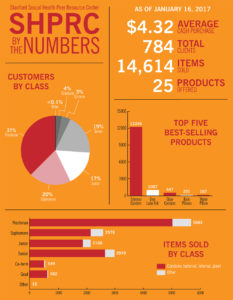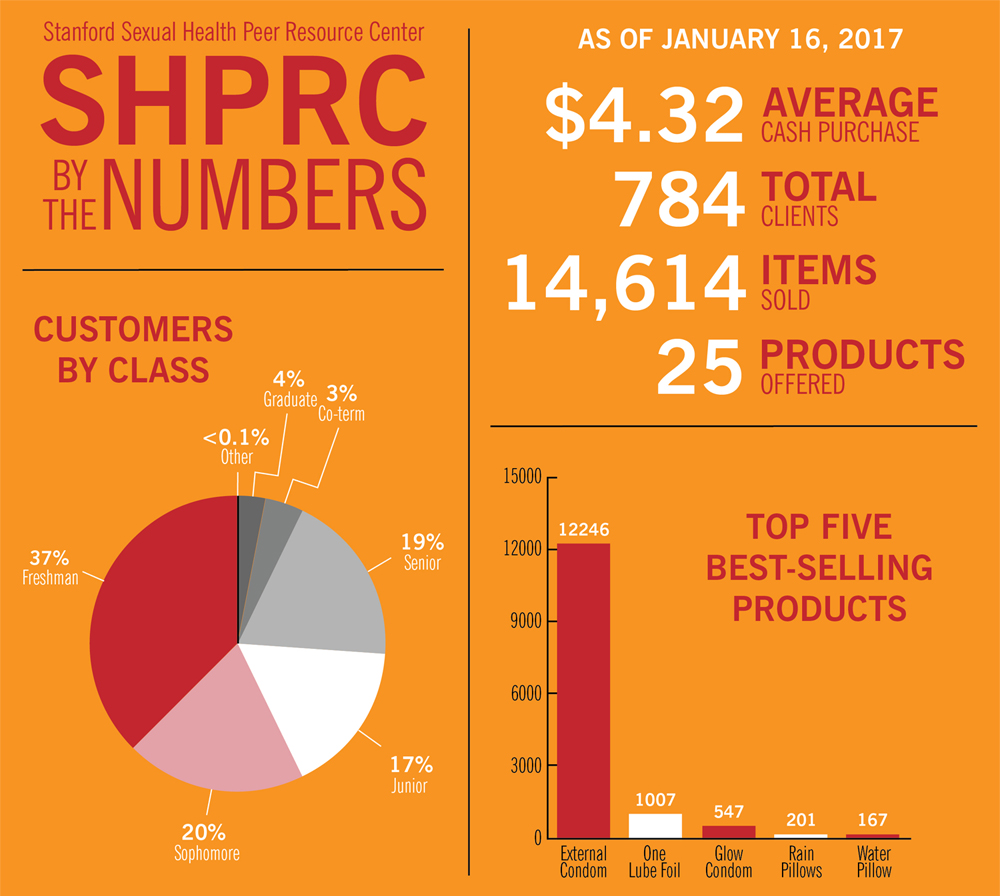
Elisabeth Dee ’17 (ED), General Manager
The Stanford Daily (TSD): Part of SHPRC’s mission is to promote sexual health and healthy relationships. How do you, as a peer counselor, help to synthesize healthy relationships?
ED: We do a lot of outreach to different dorms and community centers on campus, but for me, the most impactful way that we are able to provide students with resources and have meaningful conversations that really help them have the tools to have healthy relationships is through one-on-one conversations. That can happen through folks calling into the center, through coming and physically sitting in the center. I get approached from a lot of people on campus who say “Hey, is that a SHPRC button on your backpack? Can I talk to you about something?” And I think that it is those one-on-one conversations, that people feel more comfortable being vulnerable and intimate [in], that help folks build better relationships.
TSD: How did you become a peer counselor?
ED: I was really into advocating for sexual health in high school. I grew up in a small town in middle America, and we had no sexual education in high school whatsoever. A friend of mine got expelled from high school for getting pregnant. I lived in a state that had an abstinence-only policy, and it was illegal to talk about “homosexuality” in a positive light. I thought we could really benefit from sexual education, because, clearly, people were having sex even though they weren’t willing to talk about it. So I started a petition to get a sex-ed class in high school. Just really basic stuff, like anatomy and how to put on a condom. I was later called into my principal’s office where they told me that I was mentally disturbed and clearly a pervert, and that I could either be expelled or go to the school psychiatrist “to fix whatever is going on with you.” So I dropped the petition. I then went to Planned Parenthood, read as much as I could from pamphlets and online sources and started educating myself. I would then hold sex question Tuesdays out of the back of my car. My friends would come and ask where to buy condoms, what their periods really were, what should they be worried about in terms of pregnancy. I was kind of peer counseling before I even got to Stanford, so I’ve been involved ever since.
Lark Trumbly (LT) ’17, Office Manager
TSD: How do you help foster healthy relationships?
LT: I think a lot of the outreaches that we do are probably an important way to meet the most people. Also, Sex Week during Week 6 in the spring is absolutely fantastic in my opinion. We have panels on sexuality and sex safety and skills, workshops where people can come and have questions answered that maybe they’re afraid to ask someone else. We do that in our outreaches as well. I also work with the [Office of Sexual Assault and Relationship Abuse Education and Response] and do SAVE [Stanford Anti-Violence Educators].
TSD: How did you become a peer counselor?
LT: My friend got me interested in it, and I took the class last fall. I’ve been counseling since winter quarter of last year. Sexual health is something that I really care about. I am a sexual assault survivor, and so this is something that is personally important to me. This is something that I care a lot about, and I feel that it’s so simple to prevent STIs, but the lack of education makes it more difficult than it needs to be. Some people come in with no knowledge whatsoever.
TSD: What’s the most rewarding part of your job?
LT: I honestly really liked just being here and being available as a resource. We are confidential for sexual assault, which is something that is not common on campus, and knowing that people can come in and ask any questions that they want is pretty fantastic.
Contact Tara Shelby at [email protected].
